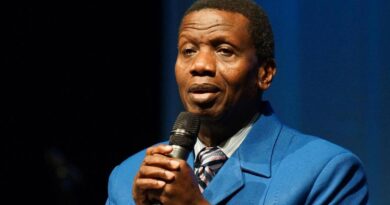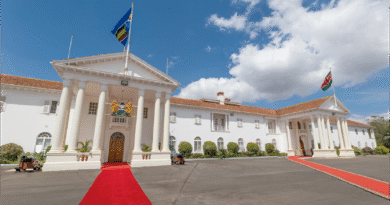Religious Violence and Persecution in Nigeria
On August 10 near Jos in Heipang town, Reverend Ezekiel Dachomo wept at the mass burial of 21 members of his church who were killed by terrorists in the early hours of the morning. Their deaths represent a decade-long crisis in Nigeria where violence, displacement, and government contradictions have deepened a humanitarian tragedy.
The Scale and Nature of the Violence
Between 2019 and 2023, the Observatory for Religious Freedom in Africa recorded 55,910 deaths, 21,621 abductions, and 11,610 terror attacks in Nigeria. Of those victims, at least 16,769 Christians and 6,235 Muslims were killed, a ratio of about 2.7 to 1 and 6.5 to 1 when adjusted by population.
Abductions followed a similar pattern: 11,185 Christians compared to 7,899 Muslims, a ratio of about 1.4 to 1 (adjusted to 5.1 to 1). The Fulani Ethnic Militias and allied bandit groups were responsible for about 55 percent of Christian deaths, more than Boko Haram and ISWAP combined.
Attacks frequently increased during farming seasons in April and May, destroying rural Christian economies in at least 15 states including Plateau, Benue, Kaduna, Zamfara, Nasarawa, and Borno. By mid 2025, over eight million Christians were displaced from these areas.
Under President Bola Tinubu, violence against civilians continued to rise. Terrorism-related killings went from 9,734 in 2023 to 11,692 in 2024. Abductions for ransom jumped from 4,049 to 9,679, an increase of 139 percent.
Policy Response: Perpetrators Rewarded, Victims Neglected
Rather than focusing on supporting victims, Nigeria’s security and humanitarian policies have centered on rehabilitating perpetrators of terror. Government programs such as Operation Safe Corridor offer amnesty and reintegration benefits to “repentant” militants.
These programs include housing, monthly stipends ranging from 20,000 to 45,000 naira, and vocational training. Meanwhile, Christian internally displaced persons receive little to no assistance. Many live in overcrowded camps with poor sanitation, food shortages, and no access to schooling or healthcare.
This imbalance damages public trust and undermines reconciliation. It also encourages further violence by rewarding those who took up arms instead of supporting those who suffered loss. Nigeria’s agricultural economy has also suffered severely. Under former President Muhammadu Buhari, the sector shrank for eight consecutive quarters, with rural communities bearing the heaviest burden.
ALSO READ: Gafcon Declares Itself the True Global Anglican Communion
Ethical and Governance Implications
- Moral Contradiction – The government’s counter-terrorism strategy prioritizes rehabilitation for aggressors while neglecting the victims who have lost everything.
- Governance Gap – The absence of a victim-centered policy framework fuels resentment and deepens religious and ethnic divides.
- International Concern – Findings from ORFA and Truth Nigeria have drawn global attention to the growing persecution of Christians and calls for an international inquiry into religiously motivated violence.
What Nigeria Must Do to Heal
To rebuild trust and restore peace, Nigeria must redesign its response to insecurity with justice and compassion at its core. Several key actions are essential:
- Balance rehabilitation with restitution. Victims deserve compensation, psychosocial support, and opportunities for recovery equal to or greater than those given to ex-militants.
- Ensure transparency. Public accountability is critical to prevent corruption and ensure that aid reaches displaced communities instead of being diverted.
- Rebuild rural livelihoods. Support for farmers and displaced families is necessary to revive local economies and prevent further hunger crises.
- Engage the international community. Nigeria should work with human rights organizations to monitor abuses and ensure policies uphold religious freedom for all citizens.
Conclusion
From 2015 to 2025, Nigeria’s response to religious violence has exposed deep moral and policy flaws. While insurgents are given homes, cash, and new beginnings, their victims are left behind in poverty and grief.
Until the state adopts a balanced and compassionate approach that restores justice and dignity to victims, its amnesty model will remain a symbol of failed governance and selective compassion.
The tears of Reverend Ezekiel Dachomo and the graves of his 21 church members in Heipang stand as a painful reminder of the real cost of policy imbalance. The numbers may tell the story of a decade of bloodshed, but behind them are people, families, and communities still waiting for Nigeria to do what is right.
Content Credit: Ohidah Oluwaferanmi
Image Credit: Godkulture.com




